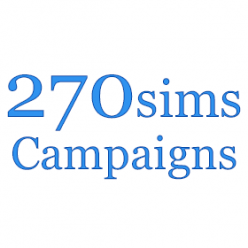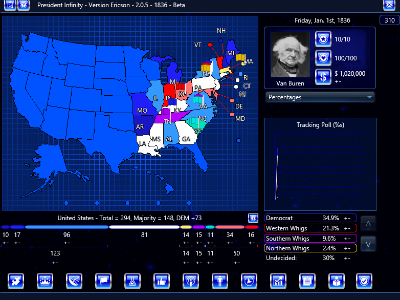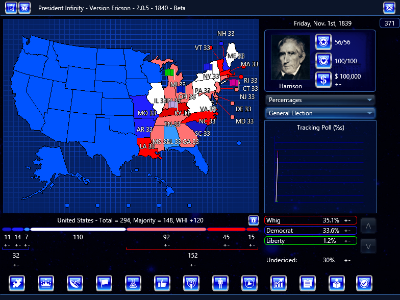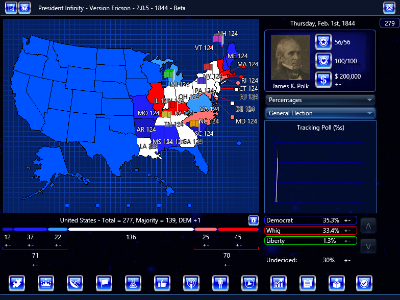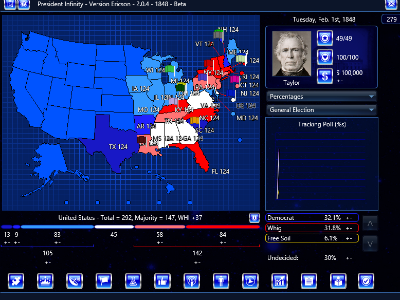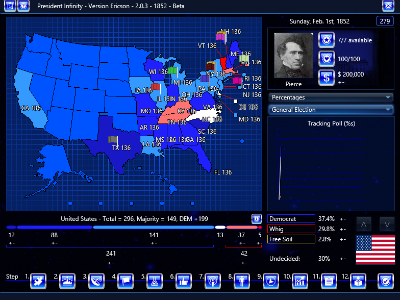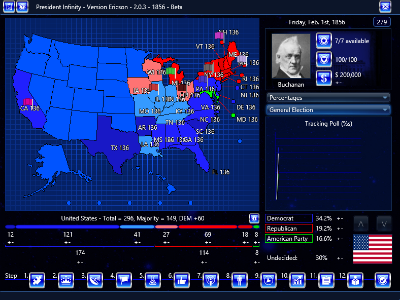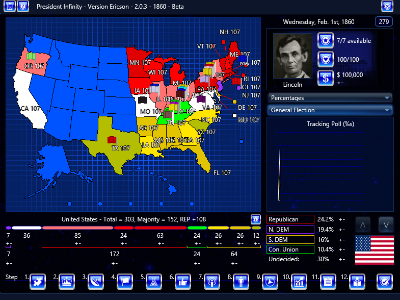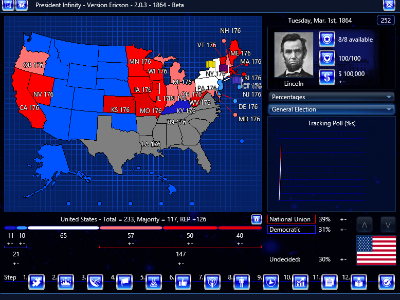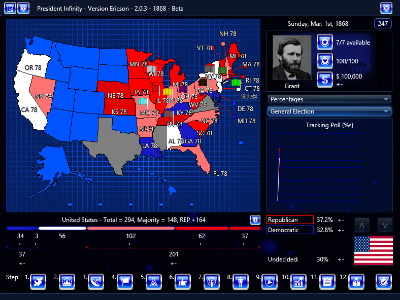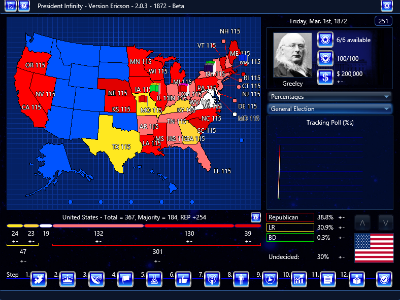*This scenario has been greatly updated by the Historical Scenario Commission. Version 2.0 can be downloaded here: United States – 1836 v. 2.0
This election follows Andrew Jackson’s transformative presidency. Popular democracy, the banking system, tariffs, states’s rights are among the many issues in this election. Andrew Jackson declines a 3rd term and endorses his VP, Martin Van Buren, who had been the architect of the Democratic Party.
Note: The election does not contain a primary season.
The new Whig Party is a loose coalition of former National Republicans, Anti-Masons, Anti-Jackson’s, Adams Men, and Southern Nullifiers. As such, they are greatly disorganized, and have decided to run four candidates separately from different regions with the idea that Van Buren would get hammered in each sector by regionally popular candidates. The House would presumably select a Whig as a president in the deadlocked election, rather than selecting Van Buren. The four Whigs are General William Henry Harrison as a Western Whig, Daniel Webster as a Northern Whig, Hugh L. White as a Southern Whig and Willie P. Mangum as a Nullifier Whig.
The Democrats have unified behind Jackson’s choice of Van Buren. Jackson helped the unanimity by moving the convention so early that an opposing candidate could not be chosen.
There is no 3rd party.
This election allows for what-if scenario:
- What if the Whigs had unified behind a single candidate with more national range, such as Whig leader Henry Clay or former president John Quincy Adams?
- What if John C. Calhoun ran as the Nullifier Whig?
- What if Andrew Jackson ran for a 3rd term?
Feedback is desired.
